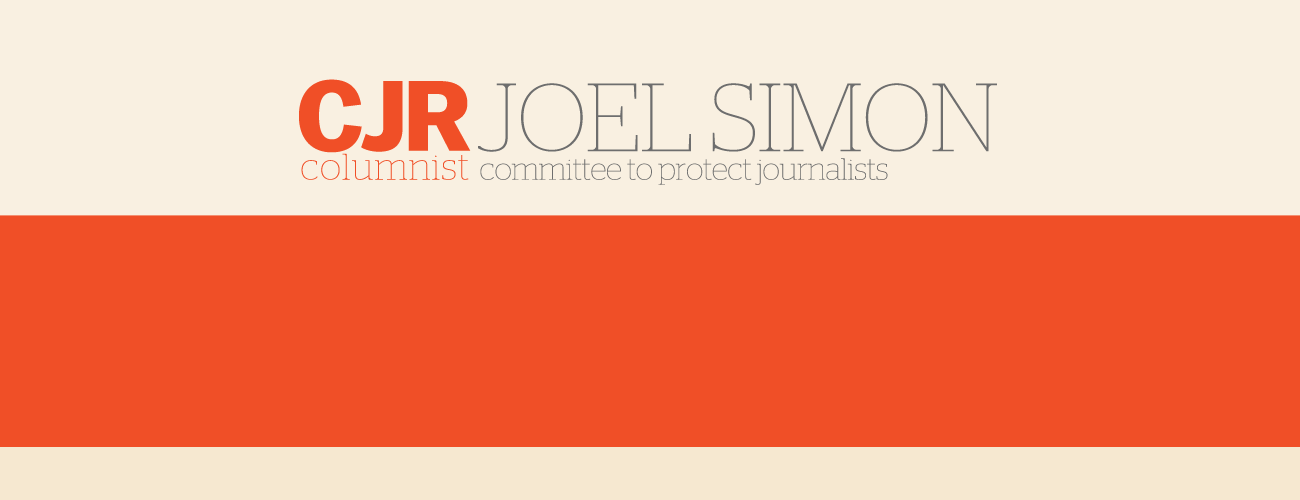Sign up for The Media Today, CJR’s daily newsletter.
At a time when democratic values are under siege around the world—most notably in the United States—Japan’s leadership is vital. But Japan can’t lead if press freedom, a central pillar of its democracy, continues to be eroded.
Japanese media organizations don’t live for scoops. They value institutional loyalty and celebrate access. This structure had made it difficult for Japanese journalists to confront emerging threats, according to a new report from the UN’s Special Rapporteur for Freedom of Expression, David Kaye.
In normal circumstances, fractious media outlets will come together when the profession is attacked. But that has not happened in Japan, where increasing pressure from the conservative government of Prime Minister Shinzo Abe has only exacerbated rivalries.
Kaye’s report documents new pressures on the media, which have risen to such a level that journalists he spoke to were unwilling to be identified. (Kaye alleged in the report that a key source was spied on by the government. The government denies it.) A number of prominent journalists—including three outspoken news anchors—have been forced from their jobs in recent years.
ICYMI: Trump gets cozy with the jailers of journalists
Kaye also notes that the 2014 law known as the Specially Designated Secrets Act is vaguely worded and could ensnare journalists who reveal classified information. A regulatory body controlled by the elected government grants authority to shut down critical broadcasts, an authority the government has not used but that stands as a threat. The Japanese media, Kaye observes, lacks “basic elements of confidence and unity,” and has failed to respond to the growing challenge.
Despite the report’s well substantiated and careful criticism, the Abe government expressed fury when it was made public last week. In its official response, the government alleged that the conclusions were based on hearsay, and so full of inaccuracies that its publication “degrades the authority of the UN Human Rights Council.”
“To me, it feels disproportionate,” Kaye told me. He will formally present his findings to the UN’s Human Rights Council in Geneva on June 12.
Japan’s extraordinary sensitivity to the criticism of its press freedom record is also indicated by the fact that the Japanese Foreign Ministry refused to meet with a delegation from the Committee to Protect Journalists when we visited Tokyo last week in conjunction with the release of the Kaye report.
“The Abe administration plays hardball,” notes Martin Fackler, a former New York Times Tokyo correspondent who has chronicled the Abe government’s relentless campaign to undermine and delegitimize the media. Fackler points to the systematic pressure on the leading liberal weekly Asahi Shimbun as an example. In the face of a campaign waged by the Abe government, the paper in early 2014 retracted a critical report on the disaster at the Fukushima nuclear facility, later gutting the investigative unit that produced the story.
This action, according to Fackler, would be comparable to The New York Times and The Washington Post capitulating to bullying by the Trump administration. Still he concedes, “Abe’s base is quite happy with the efforts he has taken against the media.”
In the past, Japan’s democracy and free press tradition not only set an example for the region, they provided a counterweight to China, which is asserting its influence using direct investment and a more aggressive foreign policy. Kaye argues that Japan’s economy and even its security depend on its commitment to democracy. “Japan’s allies and trading partners are in the democratic world,” Kaye notes. “If the country moves in an anti-democratic direction, all of that will be lost.”
The sad reality is that based on the aggressive response to Kaye’s criticism, the Abe government is unlikely to address the press freedom challenges unless it comes under consistent pressure from the Japanese media. The question is: Can the Japanese overcome their historic divisions to defend this essential right?
The answer is unclear. Makoto Watanabe, who quit the Asahi Shimbun following the pullback in investigative reporting and is now editor of a new investigative Web site called The Waseda Chronicle, believes that if the Japanese media doesn’t double down on accountability journalism and stand up for press freedom, it will lose trust and continue to bleed readers. In the end, he acknowledges, this might not be a bad thing,
“The Japanese media needs to be disrupted,” Watanabe argues. “Maybe we need a big bang.”
RELATED: Sinking a bold foray into watchdog journalism in Japan
Has America ever needed a media defender more than now? Help us by joining CJR today.



